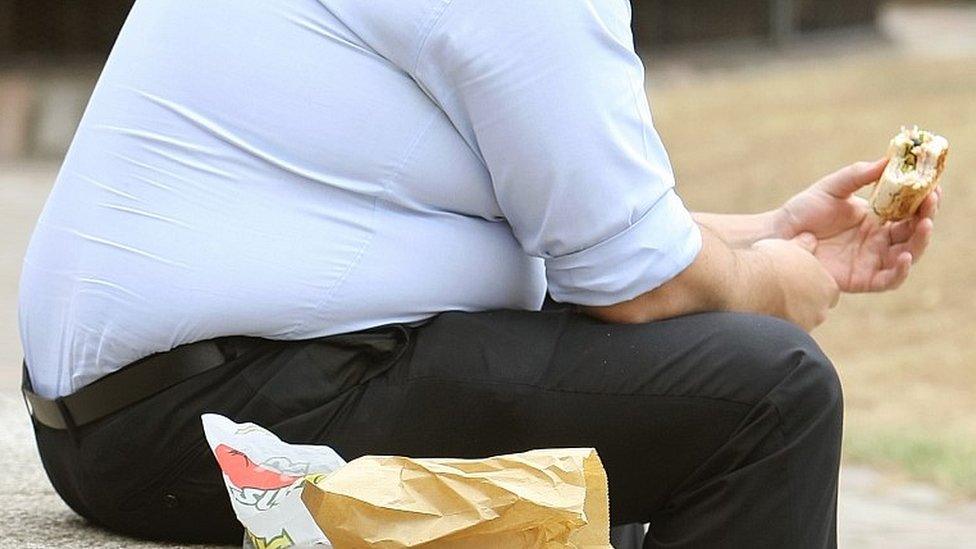Obese people take more sick days off work, study claims
- Published

Obesity is causing considerable work absenteeism, affecting the labour market, researchers warn.
The academics from Vienna who studied more than 122,000 people across Europe, say policymakers must do more to help people stay a healthy weight.
The findings were part-funded by pharmaceutical company Novo Nordisk, which makes the weight-loss injection that the NHS is now prescribing.
The study included Spain, Italy and Denmark, but not the UK or France.
Ireland, Malta and Iceland were also excluded, because there was not enough data.
The results - which are being presented at The European Congress on Obesity in Italy, external this week - have not been published in a peer-reviewed journal yet.
Most of the data from the 26 countries included in the study was collected in 2019.
Results varied somewhat by country, but overall people living with obesity were more likely to take time off work due to health issues, than people with normal weight.
The odds went up with severity of obesity.
Lead researcher Dr Thomas Czypionka from the Institute for Advanced Studies in Vienna, urged country leaders to take note of the findings: "The health consequences and economic consequences of obesity are massive.
"With the current trajectory of obesity and childhood-obesity prevalence that many countries are on, policymakers need to take more action to fight obesity, using all evidence-based measures available."
Concerns have already been raised over worker shortages affecting the UK economy, with long-term illness cited as the main reason for about a third of the working-age inactive population not being in the labour force.
Stress, Covid and the cost-of-living crisis have also been blamed.
Nearly two thirds of UK adults are overweight or obese. Obesity and poor diet are linked with type 2 diabetes, high blood pressure, high cholesterol and increased risk of respiratory, musculoskeletal and liver disease.
Related topics
- Published22 April 2024